Bridging the Student-Corporate life
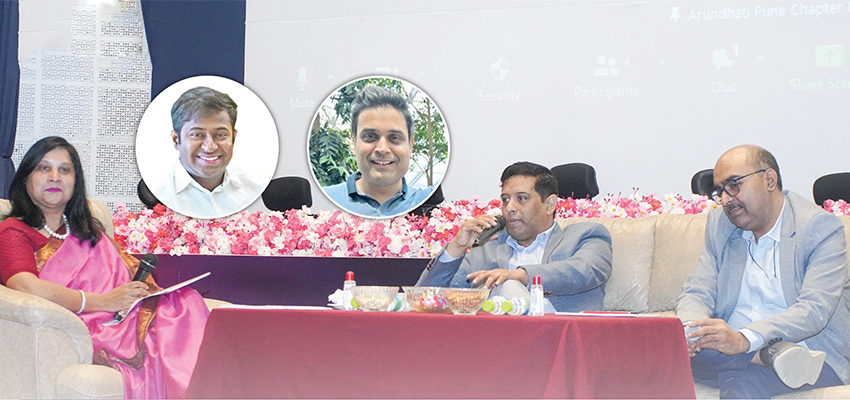
India’s largest HR network, National HRD Network (NHRDN), recently opened its first student chapter with Pune based Sri Balaji University, Pune(SBUP). At the inaugural event, a panel discussion was held on ‘Bridging the student and corporate life’ wherein panelists talked on how NHRDN helped them in gaining knowledge from HR specialists for growing in their career. They were assertive that NHRDN will act like a mentor, helping the student members to be better professionals and grow in their career. Corporate Citizen brings to you the excerpts of this discussion
PANELLISTS
- (Panel Moderator) Archana Shrivastava, Director, Balaji Institute of Modern Management, SBUP
- Akhilesh Jukareddy, Senior Manager, Human Resources, Wipro Ltd (joined online)
- Avinash Kohli, Cofounder and CEO, InTalent AI (joined online)
- Agniwesh Thakur, Director, Human Capital Consulting, Deloitte
- Dipen Sharma, Senior Manager, HRBP Medline
Archana Shrivastava: How did your association with NHRDN begin?
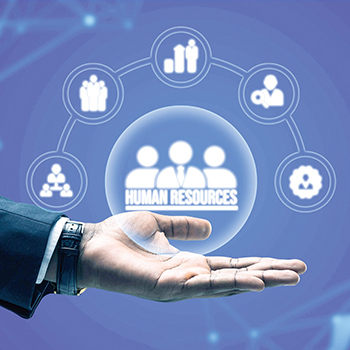
Agniwesh Thakur: It’s a fanboy moment— from a student member to national treasurer for NHRDN, life has come a full circle. We became student members, when one evening a gentleman took two to three students including me, in his car to Le Méridien Hotel, in Pune, where BB Bhatt, one of the mentors of Reliance was narrating a story. Earlier I had met the co-panellists through NHRDN and now they are a family for me.
Dipen Sharma: My association is courtesy Aman Rajabali, President, NHRDN-Pune, who is very pivotal to my career. I have known him for last 20 years and I became a student member of NHRDN through him. He was a career mentor for our batch, and that’s how he introduced us. He invited me to join the governing council when he became president, after which I became part of the Pune chapter.
Avinash Kohli: I became a student member of NHRDN in 2002 when some of my seniors at the Delhi School of Economics said that big experts in HR attend the monthly meetings at India Habitat Centre. So we decided, let’s go and listen to them and invite them for guest lectures to our campus. This was our motivation to go to these meetings and requesting the experts to come to our campus for a guest lecture. The association continued and I have been involved in the network for around 20 years now in different capacities.
Akhilesh Jukareddy: In 2009, I joined NHRDN in my first year of engineering, because I would read its monthly newsletter—the kind of context and the conversation that many of the leaders were putting in really intrigued me. There was no way I wanted to miss it in person. I enjoyed as an NHRDN student member, as I got the fantastic opportunity to have full access to the library at its Hyderabad office. Once, Former President of India, Dr. APJ Abdul Kalam, was a keynote speaker at the annual national conference of NHRDN during my bschool days at Symbiosis Institute of Business Management, Pune. So, we got to host him and be a part of organising that entire event. These initial experiences had a profound impact on me and it continued.
"This NHRD network helps you where you will always need a constant validation of your actions from some body else because you always need a coach. You won’t believe, even CEOs need coach. all your actions, apprehensions have to be validated by a mentor"
-Agniwesh Thakur
Q: How has your association with NHRDN benefitted you and how it will benefit the students?
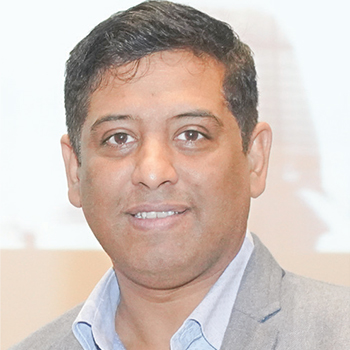
Avinash Kohli: I would like to highlight three main points:
Knowledge: Students who are taking membership or who are a part of the network here at SBUP, are from various fields. You can gain invaluable knowledge by being part of this chapter. Of course we learn in our campus from our peers, from our professors, from people who come to the campus. But, we get unparalleled knowledge by being a part of and participating in this network. I got the opportunity to listen to HR experts, which I would not have got elsewhere.
Finding inspirational role models: In this network, I found many role models to emulate when I started my career. There was no other forum where I could find such role models.
Relationships: I have so many friends who are more like a family and friends. I know people from the last two decades who started off as colleagues in the network but are now friends.
So, I would say knowledge, inspiration and relationships, when combined together gives you the confidence to be a professional and to pursue your own path. I have gained a lot from the NHRD network throughout my career and I am an entrepreneur now. Honestly, the fact that I was associated with the network and I had those relationships to look back to and to reach out to, gave me the confidence to take the plunge in entrepreneurship. So, NHRDN has been an inseparable part of me for the last 20 years and I am honoured to be a part of it and to contribute to it in some small ways.
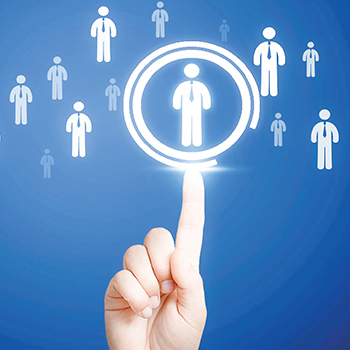
Akhilesh Jukareddy: The future really is going to be about Emotional Intelligence and having a great sense of network, because there is going to be a great change in technology. To improve your emotional intelligence, you need to collaborate with people across senior, peer level, junior and diverse industries. NHRDN is going to greatly offer that and I have been a true beneficiary of it.
Second is, you are going to become what your network is. Relationships will create impact in your career, outside your career from mentoring point of view, and that truly is going to happen at NHRDN. You wouldn’t believe today as a part of the young talent council we shadow board members. For example, as an individual, I shadow Pallavi Tyagi, executive vice-president of Capgemini and Nitu Bhushan, CHRO-South Asia, Pernod Ricard. I had the opportunity to interview Rajeev Dubey, the chairman of three Mahindra companies. This just happened because of NHRDN, otherwise I wouldn’t be able to imagine to be able to get to a point like this.
"Profound grounding that happens when you think you know it all and then you unlearn it and then you learn all those things again, that makes you a thorough professional. It validates a lot of learnings that you have"
-Dipen Sharma
Q) Many people think that NHRDN is only about the HR function whereas we have students here who are from different specialisations and all of them are members of NHRDN. So what benefit can they have, what is in it for them?
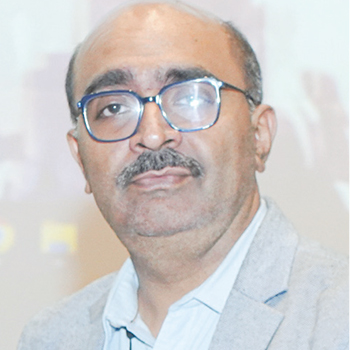
Dipen Sharma: You have to interact with people when you are doing a job in any stream whether it is analytics, marketing or HR. You begin growing very quickly in terms of your expertise. The moment you start hitting the management layer on becoming a lead and commanding a team of people then you will begin to realise the value and the net worth of your people.
You have to network not just professionally at work, but also personally with your friends, and everywhere. How do you get your team to work? When it comes to HR, this is where the maximum impact occurs. So, every management student who aspires to be an entrepreneur or a manager or a leader someday, will end up dealing with people. An NHRDN platform gives you that landscape and you will come across a lot of programmes, which will continue to benefit you in the long run.
While doing all of this our objective is two-fold, one we get new professionals to learn these elements from existing professionals and experts in the field. Second, if you think that you need to contribute and learn a few things—if you have the initiative and drive to learn then you can volunteer yourself.
When we were students, we did not have this platform. University providing a platform of a student chapter is in itself like creating a canvas for each and every student to come forward and ask what is it that it can do for them to make a transition. A student thinks that he/she will learn everything, apply these things during the job after getting a placement. But, then there is a transition phase—there will be a learning phase and an unlearning phase. NHRDN will help you with that transition.NHRDN helped me in my transition phase. It helped me to learn real world operations and management, while organising its events.
"Knowledge, inspiration and relationships, when combined together gives you the confidence to be a professional and to pursue your own path. I have gained a lot from the NHRD network throughout my career and I am an entrepreneur now"
-Avinash Kohli
Q) What are the challenges you faced being a professional and doing many other things together? How did you surmount the challenges?
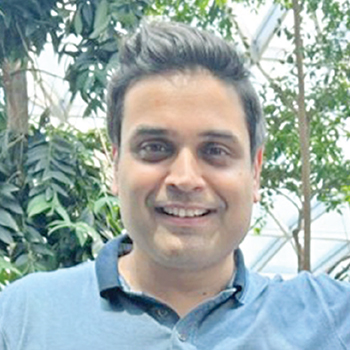
Agniwesh Thakur: After my education journey, I was placed in a company in Middle East in Muscat. Imagine a fresh college pass out doing internship in recruitment, learning and development (L&D) and other areas, and immediately you are asked to go to a foreign onshore location and next day your partner says to go and do audit of a food manufacturing unit. You don’t have books, Google, anything or even have access to the library. What do you do? First thing you do is you cry, you weep. You at least try to get your anxiety out and you try to seek help.
The first thing I did was I wrote an e-mail to Dr. T.V. Rao (chairman, TV Rao Learning Systems Pvt. Ltd.) and presented the problem I faced. In two or three hours, I received reply and he also gave me a framework to conduct the audit.
This NHRD network helps you where you will always need a constant validation of your actions from somebody else because you always need a coach. You won’t believe, even CEOs need coach, be it Jack Welch or be it your anonymous. They all need a coach. Sometimes they reveal, sometimes these coaches are in stealth mode. So all your actions, apprehensions have to be validated by a mentor. NHRDN has been a wonderful mentor to me for the past 20 years. I reach out to them and validate them. Whenever I am in doubt and I ask them whether it is right or wrong. I speak to a lot of people like Dr. TV Rao, Prem Singh, Anand Khot and SV Nathan. So, we do go and validate.
NHRDN has helped in grooming myself as a better professional and moving from HR function to becoming an entrepreneur. I lead a business unit, a PML. So, I do marketing, sales, finance and everything for my own organisation.
Leaders attending today’s event will say that 80 to 90 per cent of their work is as HR professional. Because 85 percent of our work is with talent—I need to motivate, recruit, hire, train and take a bet. The most painful work any leader does is that 60 to 70 per cent of his time, he is doing HRM himself. Because I need to train the right people and give the right compensation, I need to look at the performance. So everything is there. Even if you are a marketing professional, believe me you have to deal with human behaviour. HR is nothing but an emotion wherein professionals have to understand the human behaviour at workplace or society at large.
If you are passionate about something, you will always find a way. If you are an institution builder or a person having a knack to give back to the society then you will not put yourself in the first place. You will always try to put yourself in the last place. I come from Dehradun Military School that talks of the country first, then your team and then your safety. What is imbibed in you is that I will take my comfort at the last.
A recent newspaper article stated that an average Indian spends nine and half hours on the mobile phone daily, which is a disturbing trend. Out of nine hours, you are spending 89 to 90 percent on unproductive work, 10 percent either watching news or communicating for office purpose or similar things. Then we always crib that we don’t have time. But, if you are passionate about any cause then you will always find time for it. Find a cause, if you have passion, you will find out the purpose.
In the corporate world, we try to see if your passion can be matched with the larger purpose of the organisation itself, so that you contribute in the best way to it. You will find lots of challenges. It’s an extremely important lesson for me and for you also to try to build this network to do public good and contribute to society. We are passionate about it, we know the power of the community. If you get associated then it will also really help you out in standing tall.
"Here (in NHRDN) the first and foremost thing is what can you give? What can you offer? What can you take? That is the underlying values and ethos of our founding fathers and it continues. Of course we all want to imbibe and the students have also to imbibe it and go forward with"
-Avinash Kohli
Q) In your view what are the key differentiators of NHRDN, how is it unique and different from other corporate organisations?
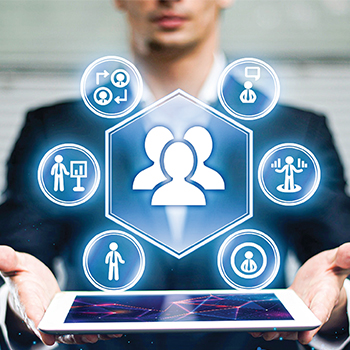
Akhilesh Jukareddy : In today’s conversations, you would have heard the words – family and friendship, quite a lot. You would have heard stories and references of mentors a lot. For me Agniwesh Thakur has been a mentor himself in the terms how he led the Young Talent Council and the kind of opportunities that he gave us as a team. These aspects of emotional bond and connect are extremely important for you to get value and give value, that happens a lot in NHRDN. It is an organisation that is extremely organic. It’s very natural, people gel, people truly respect each other, people appreciate, they always hold back till consensus is built. Sometimes it also slows down the organisation but consensus and collaboration is the key.
So we are talking of an organisation that is truly organic, relationship driven, bringing everyone together. This is the key differentiator. It’s very important to appreciate this at least in my view, because the world is really changing. Five to ten years from now, these aspects of collaboration, emotional intelligience, relationship networking is going to be the ultimate, because half of the jobs, those transactional work, is going to be done by AI. These are the aspects that really differentiate and attract me, keep me going and want to continue going with NHRDN. The angle of non-profit—it is truly about giving back to the society in the best way possible.
Avinash Kohli: I was listening to an interview of Elon Musk, a path breaking CEO of many organisations. Somebody asked him about some of the mistakes he has committed in his career. He replied that whenever I value people’s brains over their personality, I have seen that it has been a mistake. So imagine one of the most successful CEOs, sitting and saying that one of the biggest mistakes they have committed in their career, building such successful large organisations, is valuing somebody’s brain over their personality. I think for people who are in fields other than HR, it is very risky to fall into the trap that technical knowhow is everything and that personality, leadership is only secondary.
Almost always it’s the leadership that trumps technical knowhow. If there are two people who are technically equal but the other one has more leadership capabilities, then the other person always will be valued more and grow more than the person who is only bringing in technical skills. So, as you are starting your career, even as a non-HR MBA students, MBA professionals always think that you have to have a rounded personality as you grow your career.
I have seen many forums where you pay for membership, you go and attend the sessions, somebody is curating that sessions for you, you are networking and you return. It’s a very take-take sort of relationship. I am paying a membership and it’s now your job to make sure that this experience of being a part of this particular forum is meaningful enough. Whereas in NHRDN, even if you are paying a membership, actually you are also taking ownership. It’s lots of giving and not just taking. Here the first and foremost thing is what can you give? What can you offer? What can you take? That is the underlying values and ethos of our founding fathers and it continues. Of course we all want to imbibe and the students have also to imbibe it and go forward with.
The future really is going to be about Emotional Intelligence and having a great sense of network, because there is going to be a great change in technology. To improve your Emotional Intelligence, you need to collaborate with people across senior, peer level, junior and diverse industries
-Akhilesh Jukareddy
Q) Can you recall your most notable experience with NHRDN?
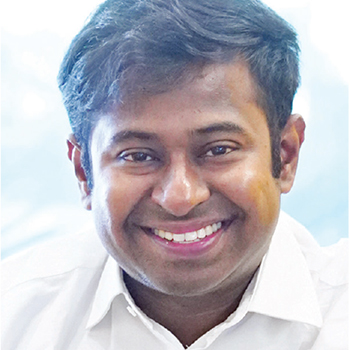
Agniwesh Thakur: It gave me power at a very junior level, even at your age, to speak to CHROs. I didn’t have that anxiety because I know what I need to speak, what I need to ask and what not to ask to these experts. This really makes you more mature at your level, when you are giving interviews.
A moment in NHRDN is like an everyday moment, we are living day in and day out and trying to thrive this community. As a national treasurer, it’s my role to make sure that I need to increase the footprints. My most enterprising moment will be the day, Akhilesh Jukareddy is starting the chapter in Europe. Mostly in France, discussions are on. We already have lot of members signed up. We will also have an international conference.
It took a lot of time to start our first overseas Chapter in Singapore. We also have Dubai Chapter having 300 odd members. Anand Khot may recollect that four or five years back in one of our board meetings, we discussed that we must start a chapter for students where no elder will be a part of that and everything will be run by students. In 2015-2016 we discussed about this and in eight years, we are seeing it happening. So probably one of my proud and most treasured moment will be that a student chapter of NHRDN is starting in the world and this will be a great testament for all of us.
Dipen Sharma: During the day long Samaveshan, our flagship event held few months back, I realised that I didn’t know so many things. The profound grounding that happens when you think you know it all and then you unlearn it and then you learn all those things again, that makes you a thorough professional. It validates a lot of learnings that you have, but it also gives you a lot of food for thought as to what we could have done better or how can you further cement your learning, further cement your experiences.
This opportunity that all of you have here, I will request each of my student members who are part of the NHRD network, your institution is giving you a platform to come forward, you should look for these kind of experiences, you should ask for these experiences. NHRDN is not about just being a member, yes it looks good on my CV, yes it looks good to be associated or to be part of one place, but what is important is that you come forward, you contribute, whether it is as a student, whether you are an academician, whether today we are a professional or as a consultant or wherever you are in whatever capacity? If you take the first step, you get to learn a lot many things which probably is, like Agniwesh Thakur said, the watershed moment that happens. You can always go on to build on many more chapters like this—the fun of creating something or organising something is the best part that you get when you get these opportunities at NHRDN.
Avinash Kohli: When I started volunteering with the network as a professional with a mike and passing on the mikes to whoever wanted to ask a question to the panellists present on the stage, I thought I was now part of the inner circle of NHRDN. Going from there, there have been many beautiful moments along the way organising different conferences and so on. Most recently is of establishing the Singapore Chapter. It was like establishing a start-up. It was possible through a lot of support from the national secretariat, the entire Chapter team there and others. We have paved the way for internationalisation of NHRDN by building Singapore Chapter over the last three years.
Akhilesh Jukareddy: Most recently, I got the opportunity to be in the Young Talent Council. It has been very special for a couple of reasons—NHRDN has really given us an opportunity to shape our experience. We try and drive some changes in the Young Talent Council. The way it is being received by the national board, it’s massively positive and really inspires us to do more. Having this opportunity to bring about some sort of change is very well appreciated. This is a great experience that I am currently going through now.